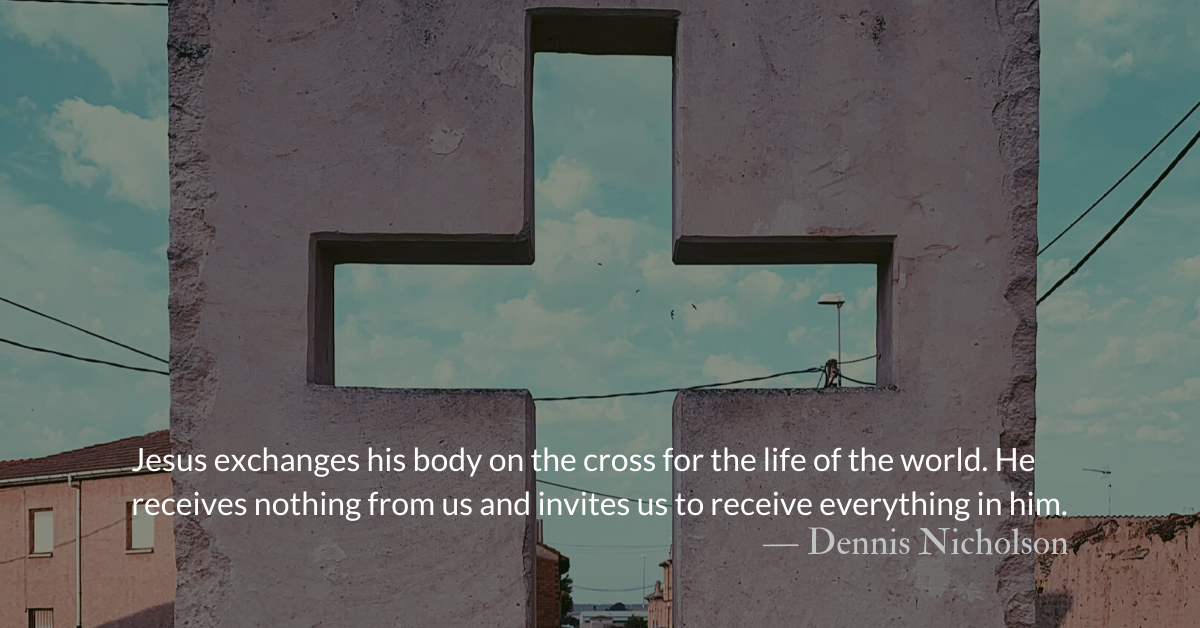We are happy to welcome ministry-focused college and seminary students from around the country and overseas to write in June of 2020 for The Park Forum. Each of them is pursuing a career in ministry and received free coaching on their writing as a part of the program. For more information about the program and a profile of each of our student writers, visit our Student Writers Month page.
Today’s student writer is Dennis Nicholson, a student at Liberty University.
Scripture Focus: Isaiah 61:3
3 and provide for those who grieve in Zion—
to bestow on them a crown of beauty
instead of ashes,
the oil of joy
instead of mourning,
and a garment of praise
instead of a spirit of despair.
They will be called oaks of righteousness,
a planting of the Lord
for the display of his splendor.
Reflection: The Gift of Unequal Exchange
By Dennis Nicholson
What is justice?
If you ask an economist, you’ll probably hear something about equal exchange. Justice in this view is like a balanced scale, where each person receives an equal share in an exchange of goods. Intuitively, this definition of justice makes sense. A pound of apples for a dollar. A day’s wage for a day’s work. A light sentence for a light crime. This is equal exchange. This is just.
But in Isaiah 61, we receive a different vision for justice. The servant of the Sovereign Lord doesn’t come to settle accounts between God and Israel; he comes to fill Israel’s account until it overflows (Isaiah 61:7). He comes to proclaim good news to the poor and freedom for the captives, without asking anything in return (Isaiah 61:1).
How can this be? Because the one who’s speaking in this chapter isn’t Isaiah, but Jesus Christ. Jesus is the servant of the Sovereign Lord, whom God has sent to proclaim good news to the poor and rebuild the ancient ruins of Zion.
And at the center of Christ’s ministry—at the foot of the cross—we find a different economy of exchange. Jesus exchanges his body on the cross for the life of the world (John 6:51).
He receives nothing from us and invites us to receive everything in him.
He places on our head a crown of beauty and takes on his own head a crown of thorns (Matthew 27:29).
He anoints us with the oil of joy and receives with joy the perfume of burial (Matthew 26:12).
He clothes us in a garment of praise and bears on his back a robe of mockery (John 19:2).
He plants us as oaks of righteousness and himself hangs on the cursed tree (Galatians 3:13).
In the injustice of Christ’s death, we find justice for our own lives. The mission of Isaiah’s servant becomes our own. We define justice not only as advocating for equal exchange for ourselves, but also as laying ourselves down in unequal exchange to serve the poor, the brokenhearted, and the captives.
May we delight greatly in the Lord, for he has exchanged our bloodstained garments for garments of salvation (Isaiah 61:10).
May righteousness spring up in us before all nations, that we might exchange the justice of earth for the justice of heaven (Isaiah 61:11).
Divine Hours Prayer: The Refrain for the Morning Lessons
Those who sowed with tears will reap with songs of joy.
Those who go out weeping, carrying the seed, will come again with joy, shouldering their sheaves. — Psalm 126.6-7
– Divine Hours prayers from The Divine Hours: Prayers for Summertime by Phyllis Tickle
Today’s Readings
Isaiah 61 (Listen – 2:23)
Matthew 9 (Listen – 4:09)
Read more about Convicted by Job’s Righteousness
We confess, Lord. (Job 31.14-15)
We have dishonored and disenfranchised those in the womb, though they, just like us, are being formed by the hand of God.
And we have discriminated against those who are born, who are our brothers and sisters, born equal before God but treated by our hands as unworthy and spoken of as if they were animals.
Read more about God’s Justice
If God were not angry at injustice and deception and did not make a final end of violence, that God would not be worthy of our worship.







